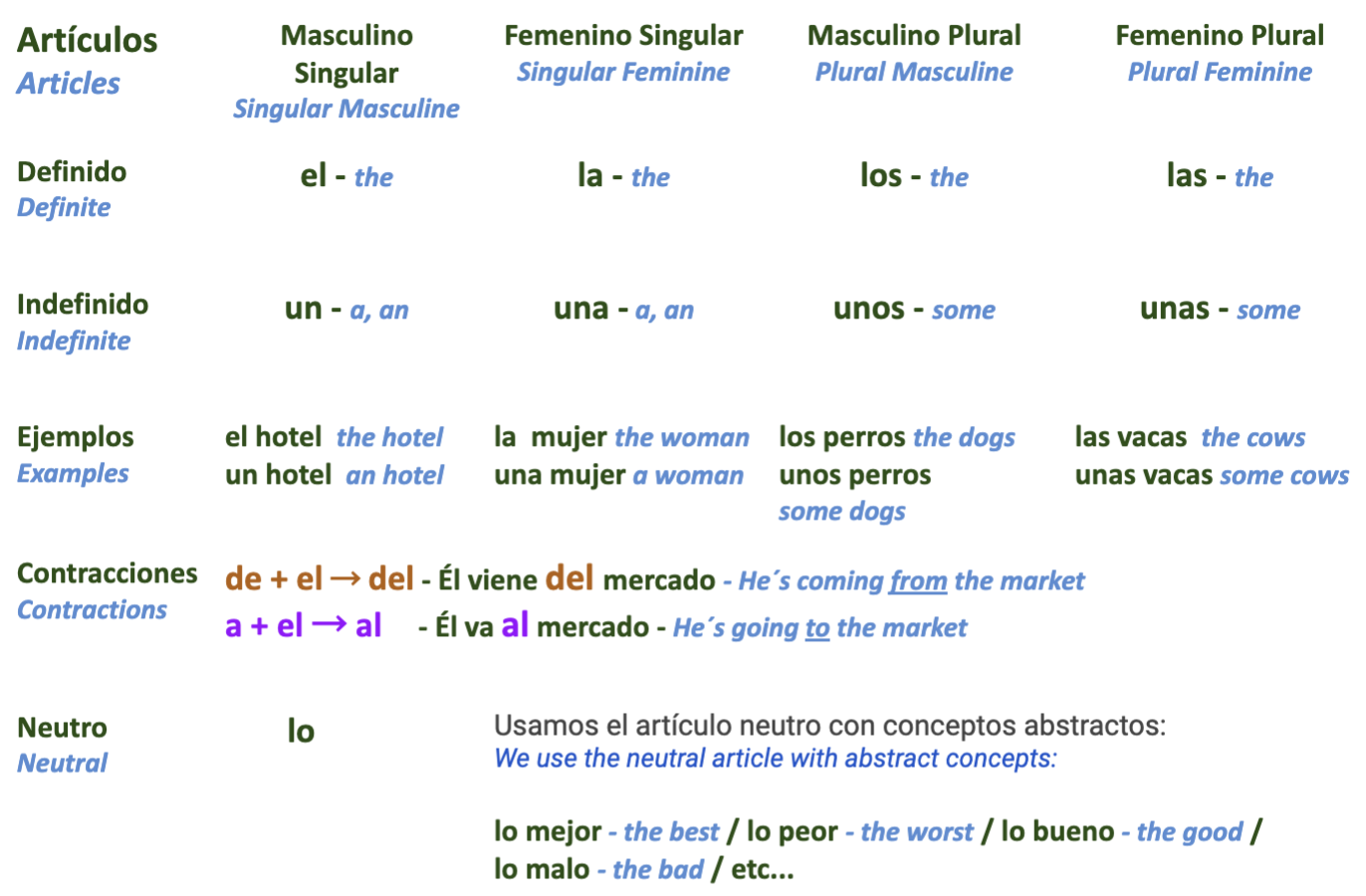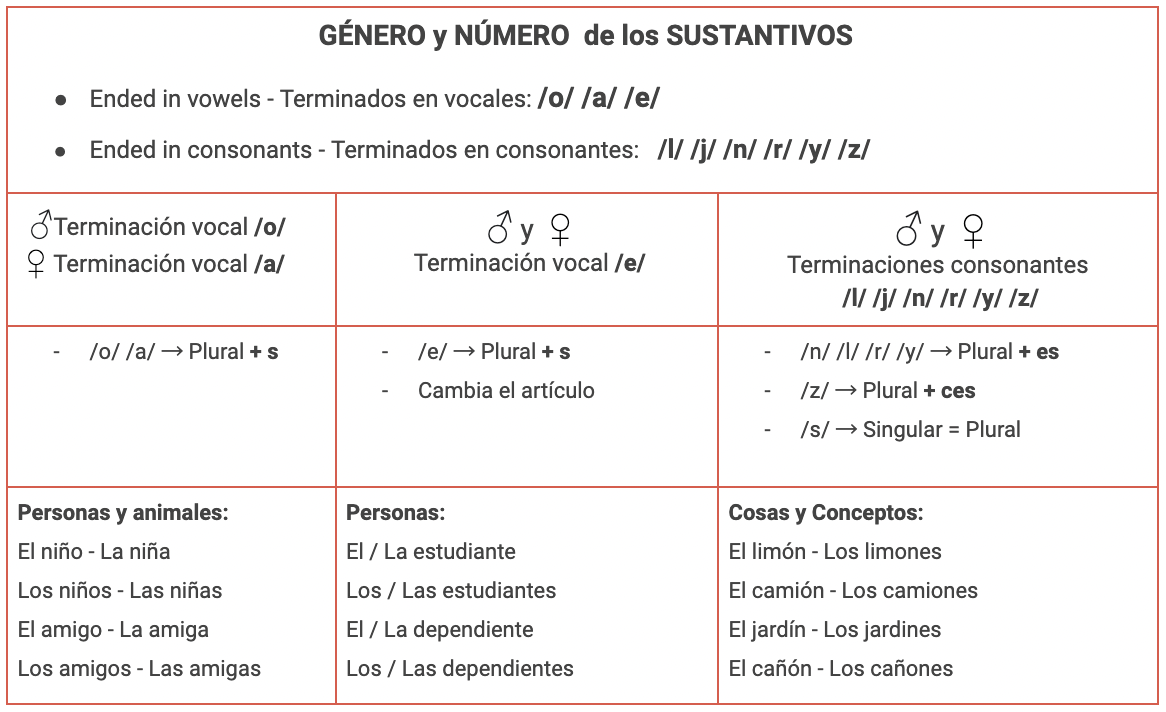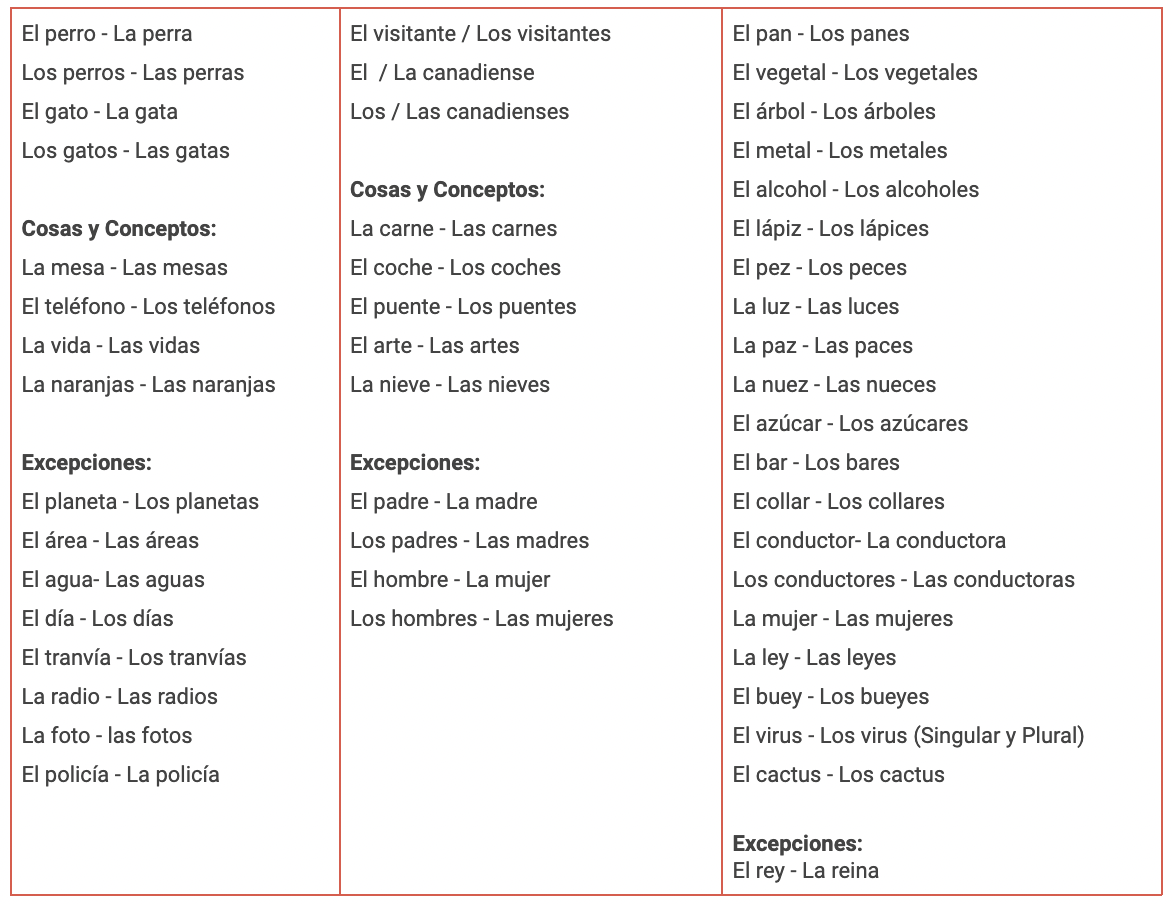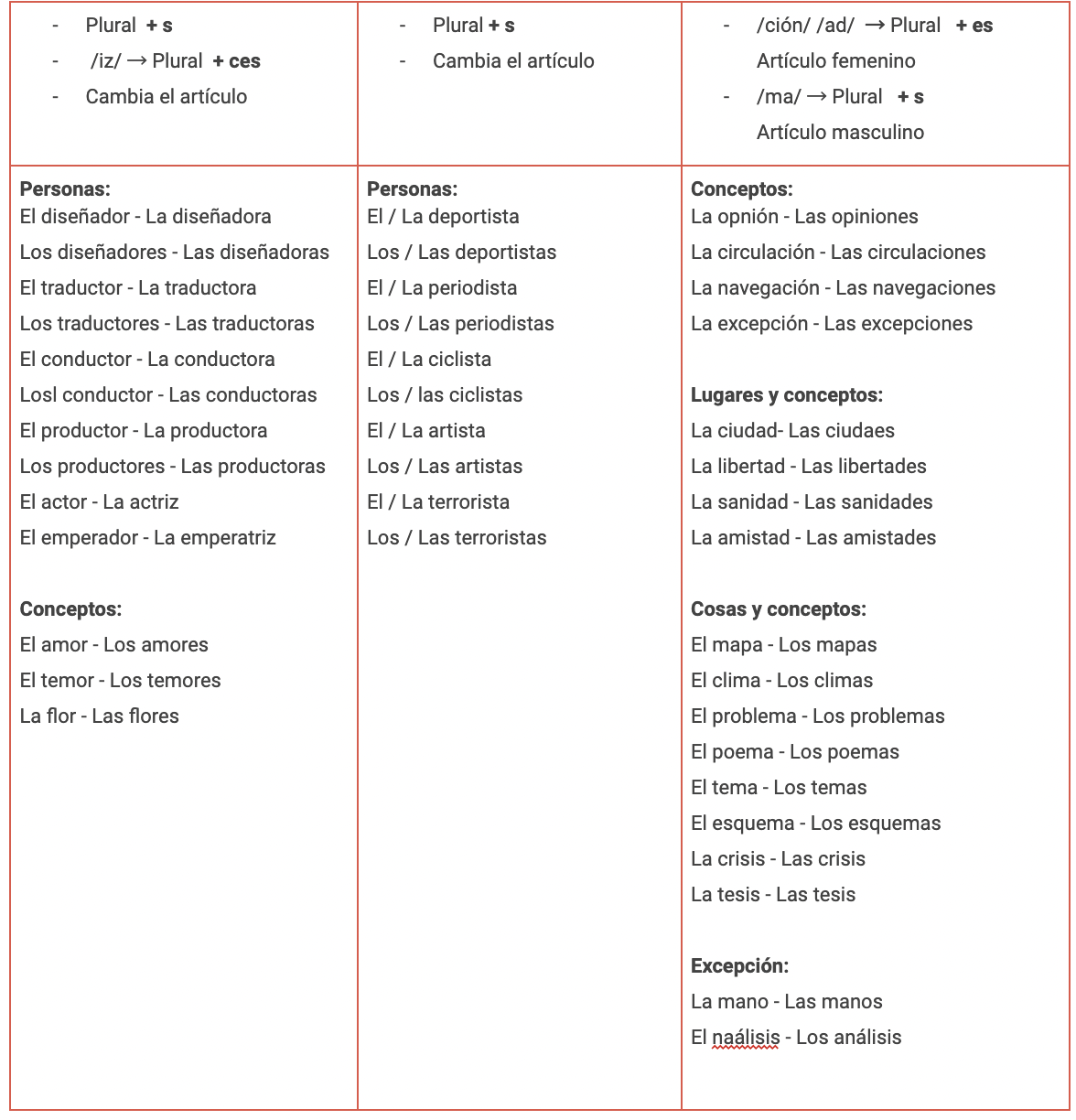Annotations about Spanish nouns
- In general, each noun is accompanied by an article.
- We have to distinguish between nouns of people and animals and, things.
- People and animals have masculine and feminine gender because they have "sex" (male -female).
- Things are male or female because they do not have "sex".
- Most nouns end:
- vocales ~ vowels: /o/ /a/ /e/
- consonantes ~ consonants: /l/ /j/ /n/ /r/ /y/ /z/
- sílabas ~ syllables: /or/ /ista/ /ción/ /ad/ /ma/
Many language learners complain that Spanish grammar is very difficult to understand and master. Some people even ask what is the most difficult language, which is easier to learn, Spanish or German.
Next, we are going to practice the most frequent cases and some exceptions of nouns in Spanish.
Spanish articles in front of nouns

Genders and numbers of Spanish nouns
Below are some of the Spanish nouns list. To learn Spanish well, your Spanish tutor will also assist you to study the words, and grammar.




Above I have shown you the common Spanish nouns with articles, and genders. According to the word list, you can easily understand if a Spanish noun is feminine or masculine. In fact, these are the basic Spanish words. If you learn to speak Spanish, you can book online lessons with me. If you have any questions, comments, or suggestions, please feel free to write them down below.
Cheers!







